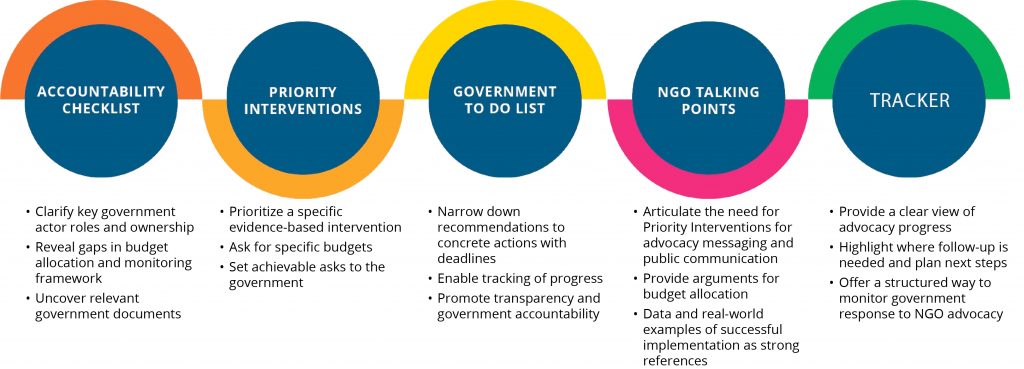
Between 2023 and 2025, seven NGOs in seven countries used the Alliance Accountability Toolkit (Toolkit) through the Alliance Incubator Program to advocate for the implementation of 30 km/h zones in their countries. Four countries reached commitment, one country implementation, and two countries promotion of the accountability cycle.
It provides a clear structure and systematic approach to real-world advocacy.
“The Toolkit provided a clear, structured approach, which helped us break down a complex process into manageable steps.” — ASR, Tunisia
It serves as a local diagnostic tool to identify gaps/opportunities/hooks, translating broad intentions into concrete asks and inputs to spur government actions.
“The Checklist is very resourceful. It went into detail and delved into the deep areas to help us assess the situation, identify existing policies, and provide concrete information to support our advocacy. First, it was the “discovery” of the government documents that mentioned 30 km zones during the ‘assess’ phase.” — ASIRT Kenya
It helps NGOs to build the case for evidence-based interventions and connect advocacy key asks to existing government initiatives, making it easier to gain government support.
“The Toolkit enabled analysis, which was crucial in presenting the findings in a more compelling and actionable way and community-friendly outputs, strengthening our credibility with government actors and gaining responses from municipalities (e.g. Recoleta and Valparaíso).” — Fundación Emilia Chile
It helps NGOs become clear about contextual stumbling blocks that are stalling progress, enabling them to identify tailored advocacy strategies.
“The structured, step-by-step approach shifted us from reactive advocacy to a more strategic and coordinated approach grounded in local diagnostics and tied to national processes” — Fundación Emilia, Chile
Highlights that accountability is an essential part of advocacy to ensure the government follows through.
The Accountability Tracker provided a systematic way … to document each communication or meeting with government officials and track their responses to ensure follow-up on commitments made.” — SAN, Nepal
